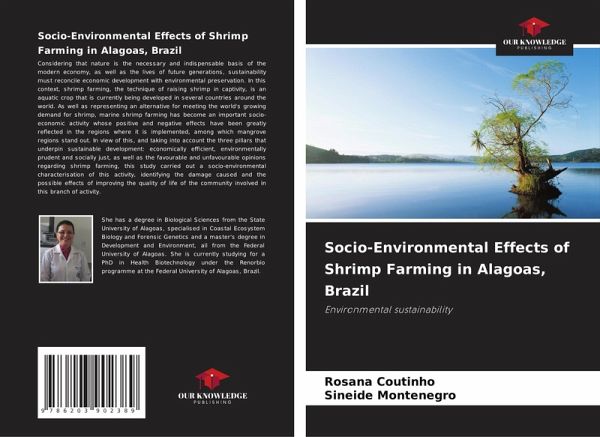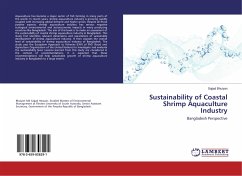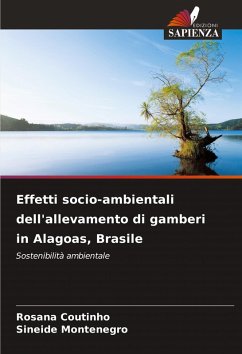
Socio-Environmental Effects of Shrimp Farming in Alagoas, Brazil
Environmental sustainability
Versandkostenfrei!
Versandfertig in 6-10 Tagen
33,99 €
inkl. MwSt.

PAYBACK Punkte
17 °P sammeln!
Considering that nature is the necessary and indispensable basis of the modern economy, as well as the lives of future generations, sustainability must reconcile economic development with environmental preservation. In this context, shrimp farming, the technique of raising shrimp in captivity, is an aquatic crop that is currently being developed in several countries around the world. As well as representing an alternative for meeting the world's growing demand for shrimp, marine shrimp farming has become an important socio-economic activity whose positive and negative effects have been greatly...
Considering that nature is the necessary and indispensable basis of the modern economy, as well as the lives of future generations, sustainability must reconcile economic development with environmental preservation. In this context, shrimp farming, the technique of raising shrimp in captivity, is an aquatic crop that is currently being developed in several countries around the world. As well as representing an alternative for meeting the world's growing demand for shrimp, marine shrimp farming has become an important socio-economic activity whose positive and negative effects have been greatly reflected in the regions where it is implemented, among which mangrove regions stand out. In view of this, and taking into account the three pillars that underpin sustainable development: economically efficient, environmentally prudent and socially just, as well as the favourable and unfavourable opinions regarding shrimp farming, this study carried out a socio-environmental characterisation of this activity, identifying the damage caused and the possible effects of improving the quality of life of the community involved in this branch of activity.












